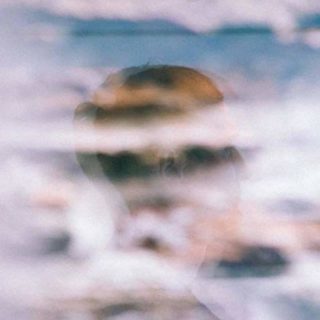Erland Cooper
Sule Skerry
(Phases)
6/10

(Phases)
6/10
There’s no fast way to get from Orkney to London but Erland Cooper doesn’t mind, particularly when the lure of his childhood home continues to compel. Stressed and claustrophobic in London, with the safe haven of his recording studio in the city providing some respite, Cooper was looking for release. He initially found it in naming improvised piano recordings after Orcadian dialect for island birds, names like tammie norie (puffin) and cattie-face (short-eared owl) pulling him back to the island he grew up on. Ultimately, that innocent nostalgic exercise manifested itself in an album trilogy shaped by the air, sea and land of Orkney.
“I like to take almost an etching of the landscape away with me in my books, boxes, digital and analogue machines,” Cooper explains. “When you listen to something out of context, that’s when you learn exactly what to keep and what to discard.”
Last year’s Solan Goose began the series with its avian-inspired instrumentals pulling in elements of ambient, electronica and contemporary classical as Cooper’s almost meditative approach instilled the wistful sense of peace he was searching for.
But taking the album’s theme to literal extremes, it wasn’t one that soared like you might expect. There wasn’t the sky-high panorama that makes the world feel small or moves to create any faux sense of drama, just a series of subtle, tonal shifts in Cooper’s genial soundscapes.
And while Sule Skerry, the second album in the triptych, switches the overarching theme to the North Sea, the method remains delicately consistent. Again, there are few ambient theatrics as Cooper explores reverberations and field-recordings: from tides coming in at dusk under a lifeboat pier where he used to hide as a boy, to capturing the shutter closing the moment the album cover was shot, to passing fishing boats and synths reaching an oddly symbiotic thrum.
“It’s a record about the sea, our relationship with the outside world, forces outside of our control,” he explains. “But it’s also about creating a nest within that, nurturing and protecting our own sea havens, those sheltered bays, those safe places. Always returning back in some form, as we step in and out daily.”
This commitment to storytelling and dovetailing details makes Sule Skerry feel like a “sonic postcard” according to Cooper, and the result is a series of idiosyncratic love letters to home. At 9 tracks long, it’s not an album that feels overwrought or overthought with Cooper getting the balance right. The tracklisting isn’t as structured as quiet-loud-quiet but where the brilliantly-titled ‘Groatie Buckies’ pushes heavy on lingering piano chords, ‘Lump O’Sea’ cuts through with a flash of tension as contrasting piano lines lean on somber strings and siren songs. Then where ‘First Of The Tide’ feels as bright and breathless as evading the waves on the beach and ‘Spoot Ebb’ dances around with a fleeting softness, ‘Flattie’ stirs as the album’s most dramatic track with Kris Dreyer’s Scottish burr adding gruff weight up front before the thunder clap of percussion shifts into the dissonance of frothing seas and storm-battered cliffs.
“Now all I want to do is tell people about Orkney and go back and take people with me,” he told the Guardian earlier this year. “Nature and Orkney in particular is the one true reset for me. There’s something about the longitude and latitude, the air is different, the light is different. It’s the one true thing I constantly go back to.”
It’s that delight in his slight return that makes Sule Skerry such a lovely piece of work—considered, crafted and explorative of details that only someone with a true affinity can delve into. If Cooper’s intent was to create an insular kind of magic, he does so here with the interview snippets and Orcadian dialect, peppering tracks with a sense of folklore and nautical culture. And just as the tracklisting for Solan Goose provided satisfied an inquisitive desire to discover and decipher, track titles like ‘Haar’, ‘Sillocks’ and ‘Spoot Ebb’ are further invitations that only add to the charm of Cooper’s magnified focus of home. Wish you were here?